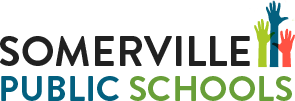
Somerville maintains strong growth district-wide in new Next-Generation MCAS Assessment
*
Brown School among 52 MA schools to earn “School of Recognition” designation
The Massachusetts Department of Elementary and Secondary Education (DESE) released results of its spring 2018 state-wide assessment, the new Next-Generation MCAS. Several changes in how accountability results are calculated – including additional indicators and different comparison groups for each school based on a school’s average percentile between 2014 and 2016 – establish the spring 2018 Next-Gen MCAS as a new baseline year for the state’s assessment. The spring 2018 results will serve as the baseline for target-setting for 2019 and beyond, and should not be compared to last year’s Next-Gen or previous years’ Legacy MCAS accountability ratings. The spring 2018 next-generation MCAS was again administered only to students in grades 3-8. Students in grades 10 will begin taking the new MCAS assessment this spring.
According to the spring 2018 Next-Gen baseline year results released by the Department, Somerville continues to show strong growth district-wide, which is now being measured using an average, not a median growth score. Somerville recorded SGPs of more than 50.0 at nearly every grade level and subject, indicating the district’s continued focus on individualized supports to help every student grow regardless of where they’re at. District-high SGPs included a grade 10 ELA SGP of 61.9, grade 6 students recorded a 57.5 SGP in Math, a 55.9 grade 8 SGP in ELA and an ELA SGP of 55.7 in grade 5. Again, because SGP is now being calculated differently, this year’s results cannot be compared to last year’s.
The Brown School was among 52 schools from across the Commonwealth designated as Schools of Recognition for high achievement, high growth, or for significantly exceeding their targets. The Brown School was in the 99th accountability percentile and earned their School of Recognition designation for exceeding their targets. Student MCAS scores in ELA and Math fall into the same four categories established last year of Exceeding Expectations, Meeting Expectations, Partially meeting Expectations, and Not Meeting Expectations, which measure where a student stands in terms of grade-level expectations. District-wide at grades 3-8, Somerville ranks among the top three urban districts in percentage of all students who are Meeting or Exceeding Expectations in Math (third with 45%) and ELA (second with 49%). State-wide, approximately 50% of all students who took the test scored Meetings Expectations or above in ELA and in Math. Somerville also maintained its proficiency in Science with 43% of students scoring Proficient or Advanced in grade 5 Science.
Students in grade 10 took the Legacy MCAS for the final year and will transition to the Next-Generation MCAS in the spring of 2019. Grade 10 students at Somerville High School saw an SGP of 61.9, the district’s highest grade-level SGP and the highest growth in ELA of any other urban district. Somerville High School also maintained its proficiency in Science with 67% of SHS students scoring Proficient or Higher on the grade 10 Science and Technology/Engineering test. Additionally, SHS continues to lower its dropout rate, recording an all-time low of 1.5 in 2017, and increase its four-year graduation rate to an all-time high of 87.9% in 2017.
“Massachusetts has long set the standard for K-12 education across the country, taking a proactive approach to developing assessment systems that focus on measuring how well we’re doing in helping students acquire the skills that will help them achieve academic and lifelong success. We know that in order to accurately assess how our schools are helping prepare students for higher-level work, we have to look at not only how we’re doing that from an academic standpoint, but from a social emotional standpoint as well,” said Mary Skipper, Superintendent of Schools. “The most recent Next-Gen MCAS assessment is an example of the state’s commitment to look at the broader picture in terms of how well we’re doing in addressing the individual needs of every student. The data shows that we are continuing to make good progress. However, our work and our focus will continue to be on looking at the bigger picture of how we challenge and support every student that we serve, with a focus on equity of access and opportunity to strong core instruction, rich real-world experiences, and individualized support that will allow each student to achieve lifelong success. We will use multiple measures and data, including these MCAS results, to inform our progress and our continuing work.”
“In Somerville, one of our biggest priorities is our youth and fostering their success with a focus on the whole child. Our approach as a community is to invest time, resources, and energy in our youth. By doing so we are investing in the future of this community and communities across the country by preparing future leaders,” said Mayor Joseph A. Curtatone. “I am incredibly proud of our students, our staff members, our partners, and our community for working collectively, tirelessly, and innovatively to ensure that Somerville remains at the forefront of educating and supporting our youth in preparation for lifelong success.”
The state accountability system is designed to measure how a school is doing and what kind of support it might need from the state. Among the changes to the accountability system introduced this year are the addition of accountability indicators designed to provide information not only about a school’s overall performance, but also about student supports and experiences beyond MCAS scores such as English language proficiency and opportunities for high school students to take advanced coursework. Each school received an accountability percentile between 1 and 99, calculated using all available indicators for that school. The focus of the newest system of assessment is on raising the performance of each school’s lowest performing students in addition to the performance of the school as a whole, to ensure upward progress in narrowing achievement gaps by “raising the achievement floor.” Accountability and assistance levels 1-5 were replaced with accountability categories that define the progress that schools are making and the type of support they may receive from DESE.
School and District Classifications
In the new assessment, schools and districts were placed into two broad classification categories: Schools without required assistance or intervention, and Schools requiring assistance or intervention. Schools that were identified as Meeting targets or Partially meeting targets fell into the first category; schools identified in need of Focused/targeted support or Broad/comprehensive support fell into the category of schools requiring assistance or intervention. Statewide, 74% of schools were categorized as “Not requiring assistance or intervention”. Schools with low assessment participation (below 95 percent) by subgroup and by subject using a two-year participation rate average were automatically designated as “needing focused/targeted support”. Districts are now categorized based on the performance of the district as a whole and no longer categorized based on a district’s school with the lowest accountability designation. Somerville was among the 75% of districts categorized as “Partially meeting targets”. School and District accountability reports list the overall classification, a reason for the classification, and their progress toward meeting improvement targets, calculated using a weighted formula that includes all applicable indicators.
Accountability Categories
Additional indicators were introduced this year that factor into a school’s accountability designation. Chronic absenteeism, English language proficiency, and for high schools only, the percentage of students completing advanced coursework are now also factored into the weighted calculation of how a school is progressing toward meeting their target goals. School accountability indicators for non-high schools fall into four categories with each category weighted based on whether a school has an ELL student population or not – Achievement (60% for ELL schools and 67.5% for no ELL schools), Student Growth (20%/22.5%), English Language Proficiency (10% ELL schools only), and Additional Indicators (10%/10%). High school indicators fall into five categories also weighted based on whether a school has an ELL population or not – Achievement (40%/47.5%), Student Growth (20%/22.5%), High School Completion (20%/20%), English Language Proficiency (10%), and Additional Indicators (10%/10%).
Somerville’s focus over the last several years has been on laying a strong foundation in the early years and developing the resources and partnerships that will ensure students are acquiring and developing the skills they need for lifelong success. The Student Insights data tool is now being utilized across the district, and is continuing to expand to ensure that the supports and the learning experience are personalized and inclusive. Out-of-school opportunities are also continuing to grow as the district works to expand students’ learning experiences beyond the school walls and the school day, with a clear focus on equity and access.
“While no one measure fully captures the progress our students make and the hard work of our educators, we are always proud when any measure shows what we all know to be true – that Somerville Public schools are committed to providing every student with an exceptional learning experience; one that will lead to both academic success and success in life,” stated School Committee Chairman, Andre Green.
“We are proud of the work of our staff, and of their commitment to challenging and supporting every student they serve,” added Dr. Almi Abeyta, Assistant Superintendent of Curriculum, Instruction and Assessment. “We will continue to focus on ensuring that we have high quality teaching in every classroom.”
— Somerville Public Schools

















These scores are fantastic, especially for such a diverse district!